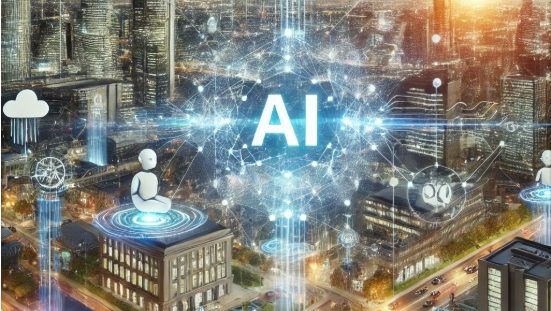Artificial intelligence (AI) has already revolutionized public services by automating routine tasks, improving citizen engagement, and providing data-driven insights. However, as we look to the future, AI is set to move beyond these early applications to redefine governance, decision-making, and societal outcomes by 2030. This evolution will bring new opportunities for governments to enhance efficiency, resilience, and public trust — if implemented thoughtfully.
Redefining Operational Efficiency in the Future

By 2030, AI will integrate deeply into public sector operations, evolving from handling repetitive tasks to functioning as an intelligent co-pilot for decision-making. Advanced AI systems will offer real-time, context-aware recommendations for public servants, drawing on historical data, live feeds, and predictive modeling to assist in complex scenarios.
For instance, future AI platforms will:
- Dynamically reallocate resources in response to unfolding events, such as disaster response or urban traffic management.
- Automate the creation of policy documents, legal reviews, and multi-stakeholder reports using generative AI tools capable of adapting to specific contexts.
- Use advanced robotics to maintain infrastructure, from inspecting bridges to repairing utility lines, minimizing human exposure to hazardous conditions.
Personalized Citizen Engagement
The next decade will see citizen engagement evolve into hyper-personalized experiences powered by AI. Governments will leverage natural language processing and machine learning to anticipate citizen needs and preferences, creating tailored interactions across all services.
Imagine a government portal that learns a citizen’s preferred communication style, proactively offers relevant information, and seamlessly integrates services across agencies. Virtual assistants will go beyond answering queries — they will guide users through life events like starting a business, accessing healthcare, or relocating, eliminating bureaucratic hurdles.
As these systems grow, they must prioritize accessibility, ensuring equitable service delivery to marginalized communities while respecting cultural and linguistic diversity.
Policy Formulation with Advanced Predictive Analytics
By 2030, predictive analytics will be foundational to policymaking. AI will enable governments to simulate complex scenarios, test policy impacts, and model long-term outcomes with unparalleled precision.
Emerging areas include:
- Digital Twins of Cities: AI-driven simulations will allow governments to test infrastructure changes, urban planning, and environmental policies in a virtual environment before implementation.
- Anticipatory Governance: Predictive models will detect emerging societal risks, such as economic instability or climate migration, enabling preemptive action.
- Ethical AI Oversight: Policymakers will leverage AI to audit other AI systems, ensuring compliance with ethical standards and minimizing algorithmic bias.
Addressing Future Security and Privacy Challenges
As AI systems grow more sophisticated, so will the threats targeting them. Future public-sector AI must integrate security and privacy by design, leveraging technologies like federated learning and homomorphic encryption to protect sensitive citizen data while enabling cross-agency collaboration.
Governments must adopt decentralized, zero-trust architectures to safeguard data flows and build trust with citizens. Privacy frameworks will need constant evolution to address emerging risks posed by quantum computing, deepfake technologies, and autonomous decision-making.
Preparing for a Fully Integrated AI Ecosystem
Looking ahead, governments will need to:
- Invest in AI Talent Development: Establish AI centers of excellence to upskill public servants and develop a workforce capable of managing cutting-edge technologies.
- Collaborate Globally: Partner with international organizations to share best practices and create interoperable standards for AI ethics and security.
- Embed AI in Education: Introduce AI literacy programs to prepare citizens for a future where AI shapes everyday life and governance.
By 2030, AI will not just augment public sector efficiency — it will redefine it. Governments that prioritize ethical frameworks, secure implementation, and inclusive practices will lead the way in leveraging AI to enhance public trust and deliver transformational outcomes.
Dr. Rhonda Farrell is a transformation advisor with decades of experience driving impactful change and strategic growth for DoD, IC, Joint, and commercial agencies and organizations. She has a robust background in digital transformation, organizational development, and process improvement, offering a unique perspective that combines technical expertise with a deep understanding of business dynamics. As a strategy and innovation leader, she aligns with CIO, CTO, CDO, CISO, and Chief of Staff initiatives to identify strategic gaps, realign missions, and re-engineer organizations. Based in Baltimore and a proud US Marine Corps veteran, she brings a disciplined, resilient, and mission-focused approach to her work, enabling organizations to pivot and innovate successfully.





Leave a Reply
You must be logged in to post a comment.